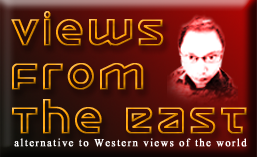Early last month, US President Donald Trump announced that the United States will be withdrawing from the 2015 Climate Change accord, which was signed by 195 countries in December 2016 to help address global warming.
Trump cited that the climate deal imposed unfair environmental standards on American businesses, calling it a “draconian” international pact. Although many met this announcement as a surprise and an insult to international cooperation, how Trump and the United States in general acted with arrogance should not be a surprise.
To cite America’s involvement in the affairs of other countries, for instance its unwelcome and illegal involvement in Syria, as the only example of its braggadocio is an understatement. Many have forgotten that Washington is non-signatory to other major international accords. In other cases it has been hostile and has repealed landmark international deals for its aggrandizement, immunity and benefit.
For one, the United States is not party to the United Nations Convention on the Law of the Sea (UNCLOS) which governs the rights and obligations of nations on the use of the world’s oceans. UNCLOS is signed by 162 countries, including the European Union, yet the US refuses to ratify the treaty because it “infringes on its sovereignty as a state” and hence it should remain “independent from any international interference on international maritime matters.
Despite that, while the US is not party to UNCLOS, it is using that jurisdiction in order to subvert the interests of other nations, such as in the case of the South China Sea, when it actively lobbied for the Philippines, its ally in the region, to use UNCLOS to claim the country’s stake against China in the disputed waters.
Another noteworthy case is Washington’s hostility towards the International Court of Justice (ICJ) treaty, which is the principal judicial court of the United Nations (UN). The US government’s refusal to sign the treaty stems from its avoidance of liability if and when US military personnel and political leaders misbehaved overseas, thus giving them immunity from persecution.
In addition to avoiding the jurisdiction of the International Criminal Court (ICC), the United States has been actively undermining the global standard of justice, including when it threatened to withdraw from peacekeeping missions in Europe and South East Asia if US personnel were not given complete immunity from persecution. This is under the auspices of the relatively recent American Servicemember’s Protection Act (ASPA), which was passed by the Congress and signed by former President George Bush in the early 2000s. In addition, the US actively sought to sign bilateral agreements with other nations which required countries not to surrender American nationals to the jurisdiction of the ICC.
In the realm of nuclear arms control, the United States also withdrew from the landmark Anti-Ballistic Missile (ABM) Treaty of 1972, which imposed limits on the US and Russia (then the Soviet Union) regarding the deployment of defensive weapons. The treaty was signed in order to reduce the need to develop new anti-ballistic missile systems putting each country vulnerable and denying them any advantage of a first-strike nuclear capability. Despite Russia’s opposition, the United States withdrew from the treaty in June 2002.
As for the landmark Paris Climate accord, the US government’s refusal to be part of the global efforts to curb greenhouse gas emissions that will lead the world to its human-induced destruction speaks volumes about America’s behavior against being a responsible nation. President Trump’s withdrawal from the Paris treaty also includes halting contributions to the UN Green Climate Fund (to help poorer countries adapt to climate change policies) as well as refusing to report on its carbon emissions.
The reaction across the world was expected, with major powers in Europe expressing their “regret” about Washington’s decision, and while Trump spoke of “renegotiating the treaty to benefit America”, leaders in France, Germany, and the UK said the Paris Climate Treaty is non-negotiable.




